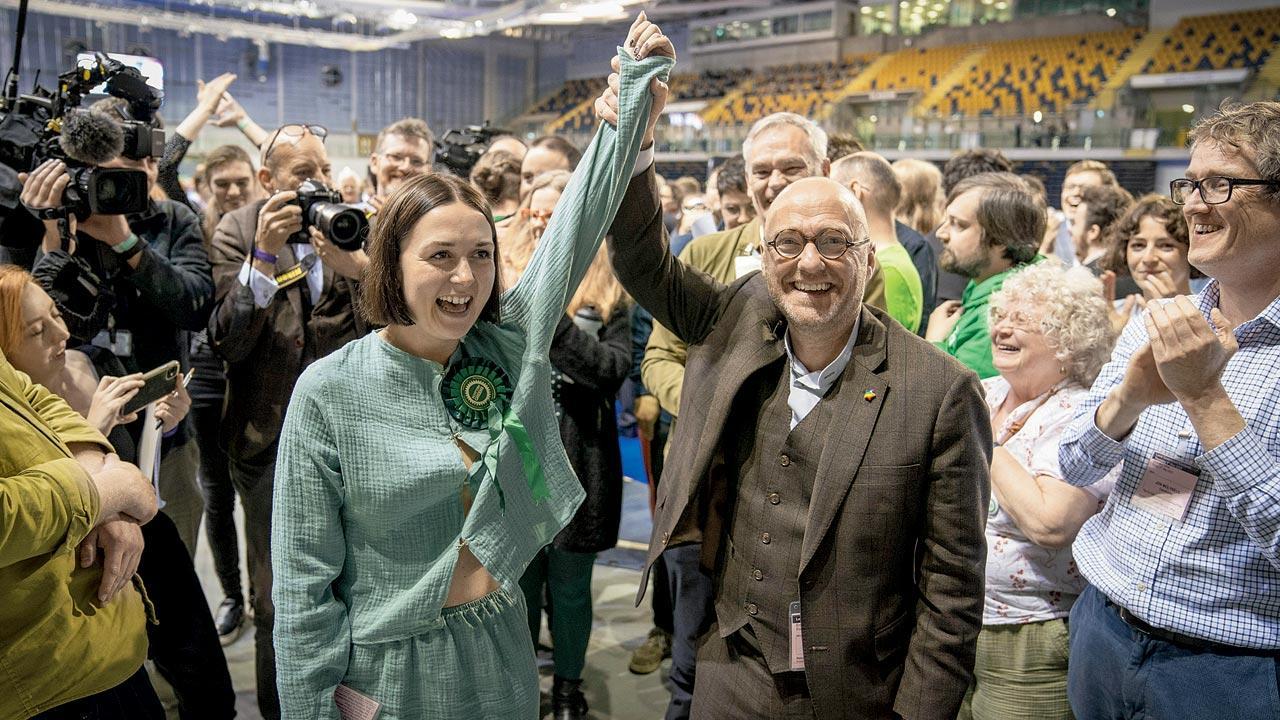Home / Sunday-mid-day / / Article /
This Bengalurean helps Glasgow become UK's first feminist city
Updated On: 06 November, 2022 02:44 PM IST | Mumbai | Yusra Husain
A Bengaluru woman may have had a hand in Glasgow being stamped UK’s first feminist city, but her own country is miles away from the honour

Scottish Green Party’s Holly Bruce celebrates at the Glasgow City Council in May as local government election results are revealed. Pic/Getty Images
When Glasgow was recognised as the UK’s first feminist city last week, in part to the efforts of Scottish Green Party Councillor Holly Bruce, thousands of miles away in Bengaluru, a woman in her late 20s was also rejoicing. It was not without reason that Sneha Visakha was joyous; she had played a “small role” in the big chapter of feminist urban planning.
Bruce, who proposed feminist town planning to Glasgow City Council that was accepted unanimously, was also part of the Young Women Lead (YWL) programme of 2021. Scotland’s YWL, a cohort of women aged between 16 and 30 years, conducted a nine-month-long study of Glasgow’s urban infrastructure. This culminated into a report titled Glasgow: A Feminist City? and Visakha was invited to speak as a resource person. That’s how Visakha found herself as a cog
in the wheel of a city rolling towards equality.



